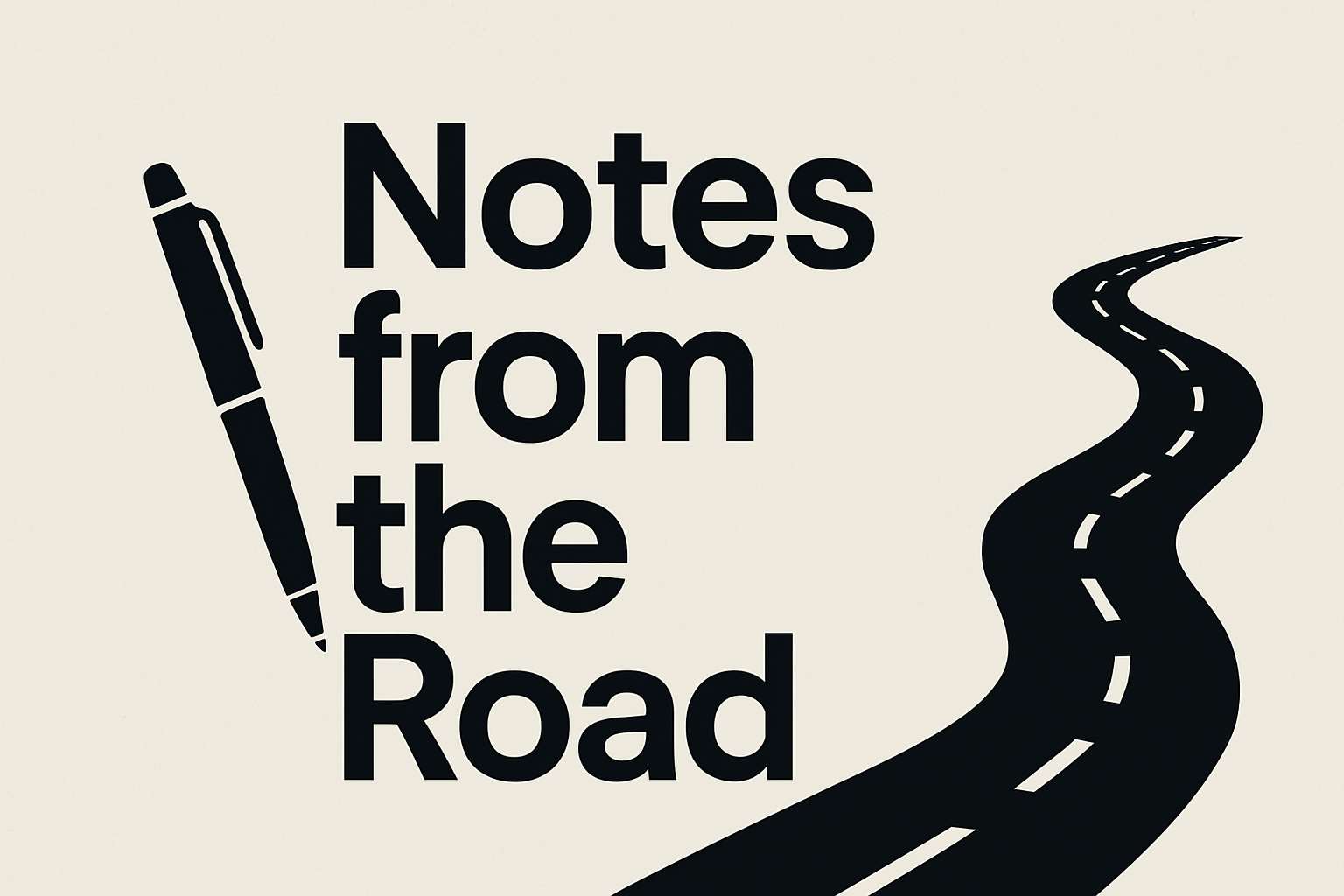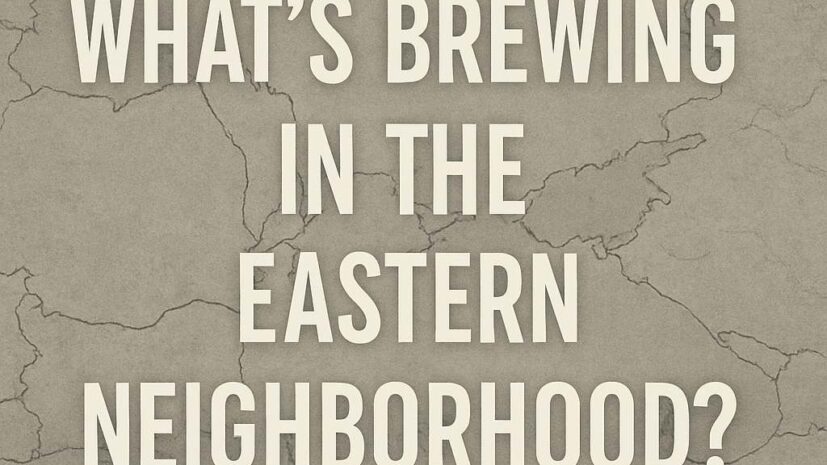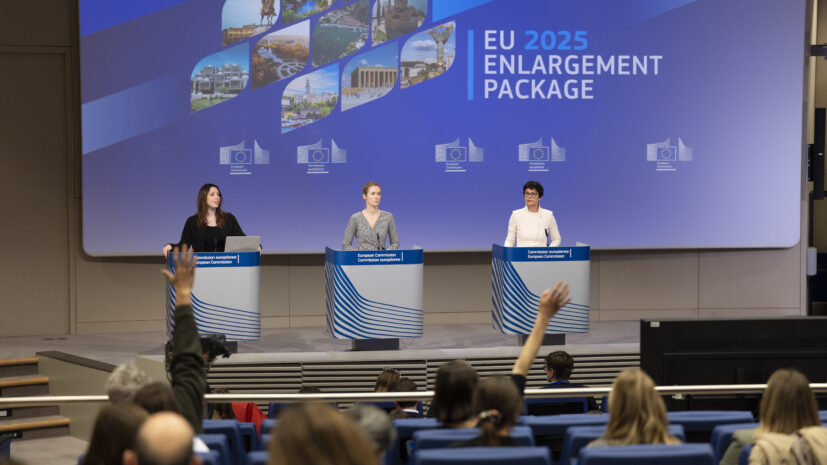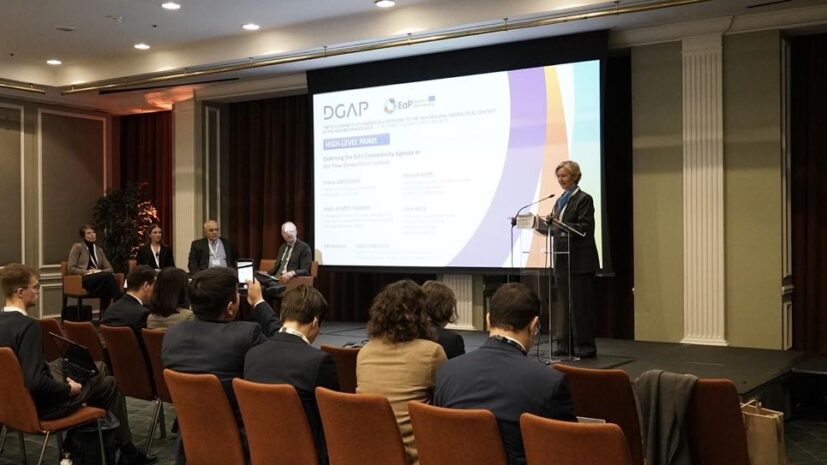EaP Think Tank Network

Image generated by ChatGPT, OpenAI, July 29, 2025.
Original Content
A Polish Perspective on Ukraine
These Notes from the Road are based on the July Conference of DGAP’s European Zeitenwende Strategy Group in Warsaw. At the conference, the group met with representatives from the Polish administration and Warsaw-based think tanks.
Karol Nawrocki’s Future Role in Polish Politics
- The difficult cohabitation of Donald Tusk’s government and the recently elected President Karol Nawrocki will characterize Polish politics for the next two years. Right-wing Nawrocki was particularly vocal about his anti-Ukrainian stance during the election campaign and will most likely attempt to obstruct parts of the government’s measures for supporting Ukraine. However, he is a newcomer in Polish politics and might develop more nuanced thinking once in office. Established figures like former President Andrzej Duda are already working to realign Nawrocki with Poland’s broader strategic interests, which are decidedly anti-Russian and therefore pro-Ukrainian.
- Beyond Polish domestic dynamics, Poland’s new president will be mirroring the United States’ positioning towards Ukraine. The Trump administration and the MAGA movement share ideological links with Nawrocki and can strongly influence him.
Polish Support for Ukraine
- Across party lines, the Polish administration is aware that there are no good solutions to ending the war in Ukraine right now. Offering Ukraine a perspective of transformation, including integration into the European Union, is nonetheless a priority for Poland. Not least out of self-interest, Poland understands that a stable Ukraine is essential for European security and that the alternative of a collapsed Ukrainian state would be hazardous, especially for its direct neighbors. Poles and Europeans, hence, must help Ukraine survive the war with its sovereignty and statehood intact, which requires support not only for defense and security but also for the Ukrainian economy.
- The Polish approach to this support is to mobilize resources and coordinate military assistance on the European level, rather than deploy troops to monitor a potential ceasefire. Ukraine and its allies will continue to benefit from the logistical hubs in Southern Poland. Still, beyond that, Poland is focusing on its own defense, particularly on the Polish-Belarusian border.
Ukraine’s EU Accession
- However, there are concerns about the possible consequences of Ukrainian EU integration among Polish businesses and farmers. From a Polish perspective, Ukraine’s potential to fundamentally reshape the European agricultural (and energy) market will require a reform of the EU’s Common Agricultural Policy (CAP). Due to its size, soil conditions, and overall strength of the agrarian sector, Ukraine would quickly dominate the European market and pose fierce competition to other member states while benefiting from EU CAP and cohesion funds. Current fears about the future of Polish agriculture do resonate within society. Still, optimistic voices estimate the risk for the Polish economy as limited because the Polish agricultural sector has already consolidated over the last decades and managed to compete globally. Poland has the unique experience of knowing both sides of such debates, as current concerns about Ukraine’s accession and agricultural dominance are similar to discussions in France and Germany around Polish EU accession in the 2000s.
- Despite the presence of anti-Ukrainian sentiments throughout Poland, the Tusk government favors Ukrainian EU membership and made significant efforts during the Polish EU Council presidency to advance the process, but couldn’t overcome the Hungarian obstructions. Furthermore, Poland does not support decoupling Moldova from Ukraine’s accession and sees an opportunity to utilize the current momentum of EU enlargement to improve Ukraine’s perspective towards reconstruction and stabilization.

The EU’s Eastern Neighborhood in 2026: Key Trends to Follow
“What’s Brewing in the Eastern Neighborhood?” brings timely questions to a panel of experts, sparking dynamic debate and showcasing a range of per...

The New Enlargement Package Sends the Right Message – Now the EU Needs the Backbone to Go Forward
The EU’s new enlargement package puts geopolitics firmly at the centre – and rightly so. Russia’s full-scale invasion of Ukraine jolted enlargement out of...

EU’s Connectivity Agenda. Takeaways from the DGAP High-Level Event
Following the DGAP high-level event organized on December 2 in Brussels Anastasia Pociumban provides an outlook on the event’s key takeaways.
